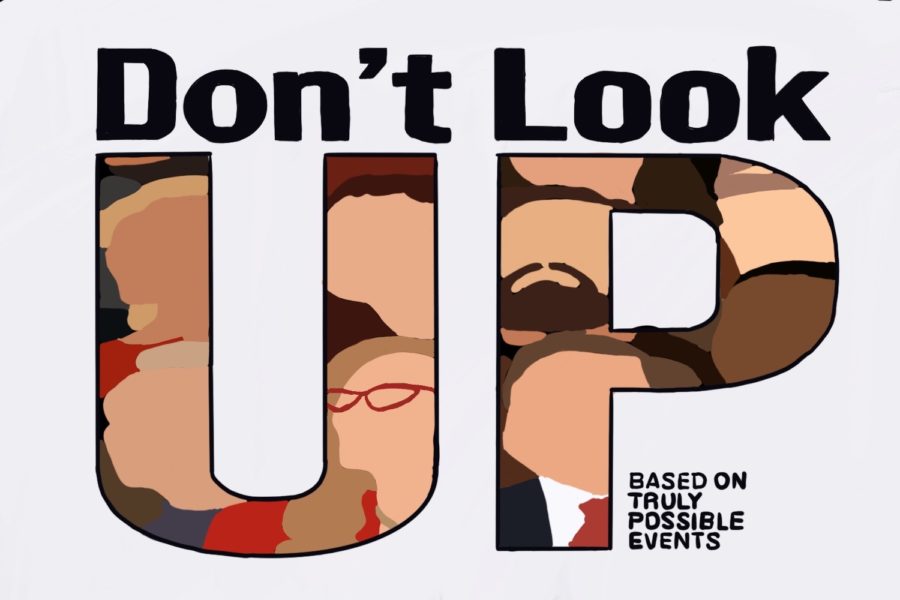‘Don’t Look Up’ review
One of Netflix’s newest original films, ‘Don’t Look Up’ has amassed mixed reviews, currently with a 49 percent rating on Metacritic. The film smashed Netflix viewing records and gained Academy Award nominations.
One of the most anticipated movies of 2021, “Don’t Look Up,” arrived on Netflix and in theaters in late Dec. 2021. It is a satirical, sci-fi film that follows two astronomers, Randall (Leonardo DiCaprio) and Kate (Jennifer Lawrence), who attempt to alert the world of a catastrophic comet that will hit the Earth, wiping out the entire population.
One of the film’s major initial pulls was its stacked cast. Along with DiCaprio and Lawrence, the movie also features Meryl Streep, Jonah Hill, Timothee Chalamet, Ariana Grande, Mark Rylance, Kid Cudi, Melanie Lynskey and many more. With 41 Oscar nominations shared among the cast, Adam Mckay’s latest project earned four of its own: Best Picture, Best Original Score, Best Original Screenplay and Best Film Editing.
Although having a mixed critical reception, ‘Don’t Look Up’ still managed to make a bit of cultural noise the week of its release and break a slew of Netflix’s streaming records.
Globally, the film garnered 152.9 million hours of viewing in the week of Dec. 27 to Jan. 2, thus breaking the record for the most hours watched in a single week in the platform’s history. Additionally, it is currently the second most-watched movie (in its first four weeks) of all time, surpassing “Bird Box” and behind “Red Notice.”
The message of this film had a split reception from audiences. Many left “Don’t Look Up” with their minds buzzing with dread of seeing a dramatized yet possible reality displayed on the screen. In contrast, others were dissatisfied with the story’s execution and searched for depth but failed to find it. I am placed within the border of those two with Mckay’s screenplay and directorial decisions, but ultimately, I am swayed by the timeliness and urgency that this film illuminates.
Before watching the film, most viewers are already conscious of how it will end, so with a pre-understood conclusion, I focused on following the buildup of events that cemented the character’s impending doom. There is no subtly with its major themes, but perhaps it is intentionally on the nose to reflect the current world. Displaying the narcissism of the political figures and the naysayers of science while currently in a nearly two-year pandemic and in an everlasting climate crisis was easy for a diverse audience to pick up on.
The only aspect I found tiresome was the meta-humor on celebrity that continuously took me out of the film when viewing such familiar faces.
When it came down to the most anticipated sequence, that being the world’s inevitable demise, it was executed exceptionally well. Accepting one’s fate as represented through a casual family dinner while the comet comes hurtling toward them: shaking the table, breaking the windows, fear slowly showing in their expressions up until their last moments. It was all visually pleasing.
Even in the fleeting moments that the film is falling into redundancy, the message sees itself through and, at the very least, turns the attention onto real-life issues and attempts to revamp worthwhile discussions about awareness.

